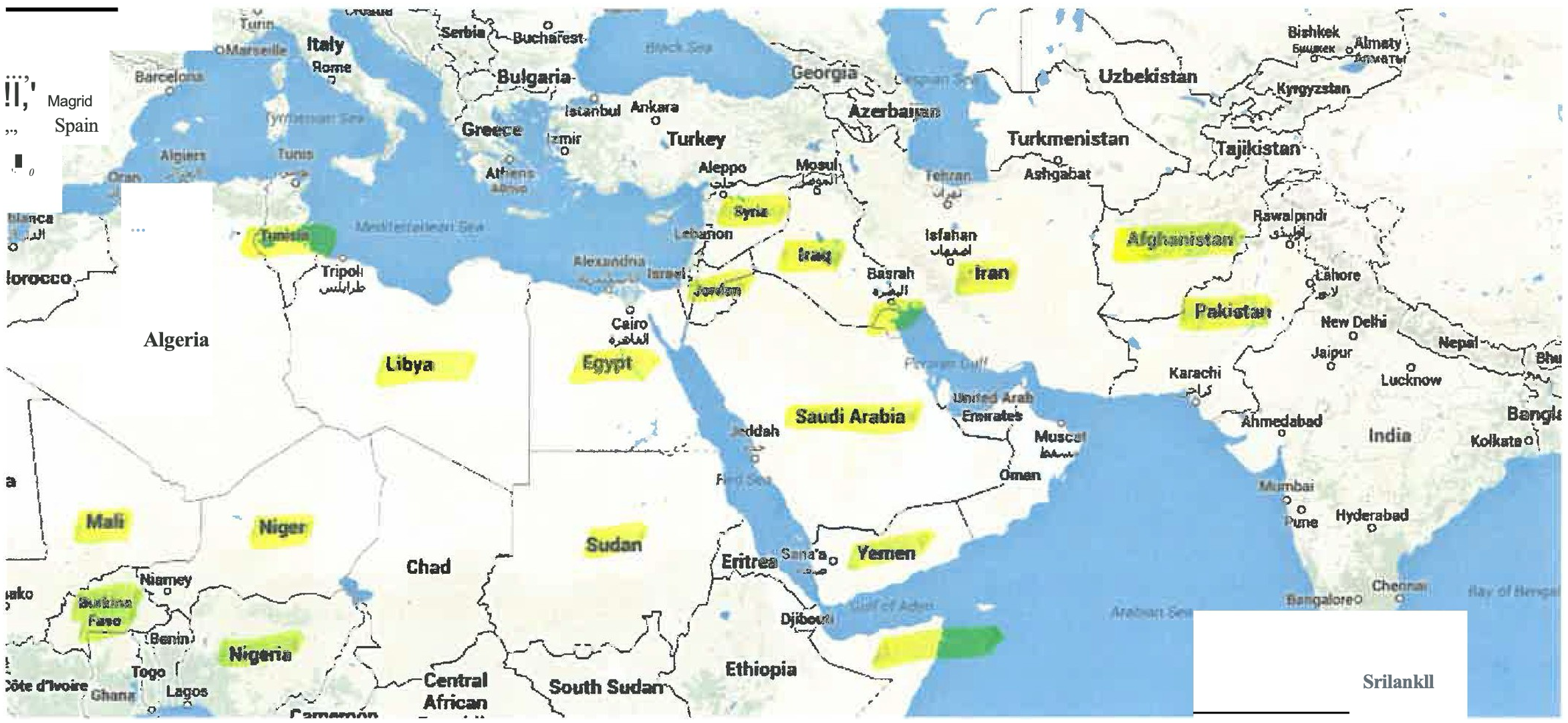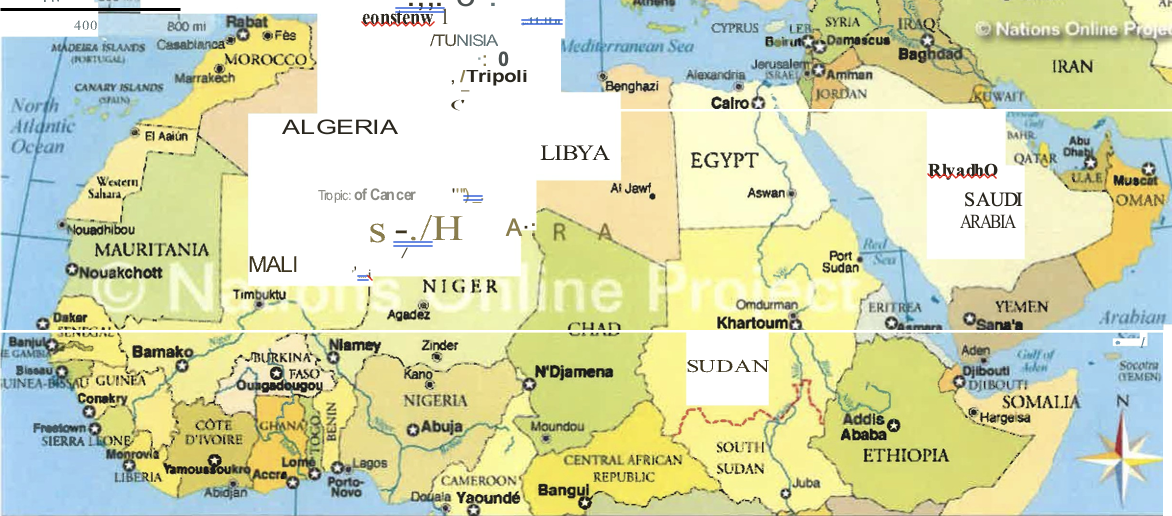Good Evening:
To the Members of the Salt Lake Committee on Foreign Relation and Guests
The destabilization in the Middle East and Africa over the past 60 years may be overshadowed by the events unfolding today in the Crimea. It may well become the gravest situation since WWII.
Russia's move into the Crimea has the Muslim Tartar population of 250,000 concerned. They still have memories of Stalin deporting them in 1944, and returning in the late 1980s.
Tatar extremists are fighting in Syria. The danger is that al-Qaeda linked Islamists could destabilize the region, which could reach the European countries.
Ukraine has moved their troops from the Crimea. The U.S. and Britain are planning a joint military exercise in Ukraine, which will anger Russia.
Russia has said it may withdraw from talks to curb Iran's nuclear ambitions. Also they may not press Syria further on their chemical weapons arsenal removal.
NATO today has suspended cooperation with Russia.
So time will tell the impact of Russia's incursion into the Crimea.
The destabilization of the Middle East and Africa can be traced back to the irrational borders created by the colonialists, which separated tribal, ethnic and religious clans.
Poverty, jobs, high food prices, and government repression have brought about many of the conflicts in the region. Disputes over the natural resources have added to the instability.
The Arab Spring started in December 2010 with self-immolation of a Tunisian street vendor whose fruit cart was confiscated by local officials. Demonstrators took to the streets in Tunisia, and soon followed in Egypt, Libya, and Yemen over poverty conditions and government brutality.
The ousting of the ruler Zine Ben Ali in Tunisia, Hosoi Mubarak in Egypt, Muammar Gaddafi in Libya, and Abdullah Saleh in Yemen has not brought about democracy or peace in those countries.
In Egypt the State Department coached the Muslim Brotherhood on how to organize an election. Mohamed Morsi their candidate won, but soon pressed to institute Sharia law. One year later he was deposed in a military coup.
The Sinai Peninsula is now in chaos, with Islamists infiltrating the area, which threatens Israel's security.
The US-NATO incursion into Libya emboldened al-Qaeda linked Islamists that had trained in the Sahel region of sub-Saharan Africa.
Since Gaddafi's demise there have been attacks on government officials, diplomats, and aid workers. In 2012 the Islamists attacked the U.S. consulate in Benghazi, killing the ambassador and three other Americans.
Libya has the largest oil reserves in Africa, and the 5th largest in the world. Europe has been the main customer, but Gaddafi kept raising prices and made oil ministers negotiations difficult.
Oil exports have now been cut off by Islamists that control the ports in eastern Libya. At the port of al-Sidra last week a North Korean tanker was loaded with 240,000 barrels of oil.
Prime Minister Ali Zeidan was ousted by the parliament for not stopping the ship from leaving. On Monday U.S. Navy Seals seized the ship in International waters.
Building democratic institutions in Libya so far have failed, with Islamists controlling large sections of the country.
Syria is in its 3rd year of a chaotic civil war, in which tribal and religious factions and Islamist rebels are fighting for control.
There are almost 11,000 Islamists now in Syria, coming from nearby Arab countries, Iran and Europe.
Bashar al-Assad is supported by Russia. If he is ousted, democratic institutions will be difficult to take hold, as is the case in Libya.
Assad's minority Alawite tribal members are concerned, knowing that Gaddafi's minority Warfalla tribal members were slaughtered after his demise.
In Iraq since the U.S. troops left there has been an increase in Islamist attacks. More than 1,000 people were killed in February, and more than 8,000 last year.
Prime Minister al-Maliki stated Saudi Arabia and Qatar are supporting the al Qaeda affiliates operating in Iraq and Syria.
Qatar also supports Islamist extremists in Africa, including the Muslim Brotherhood.
AI-Maliki noted that Jordan has become the base for dissident Iraqis planning to topple his administration. Over a million Palestinian refugees and 600,000 Syrian refugees are now in the country. Jordan is at risk of uprisings that could further destabilize the region.
Yemen has seen increased fighting in the north between Shiites and Sunnis, with 40 people killed recently. Al-Qaeda in the Arabian Peninsula (AQAP) located in the south has become a dominant force throughout the region.
In Bahrain Shiites have demonstrated against the minority Sunni Monarchy. Last week a bomb killed three policemen. The terrorists had retaliated for the jailing and torture of the demonstrators.
The U.S. Fifth Fleet, our largest naval presence in the Gulf region is located there.
In Iran mistrust of the U.S. goes back to 1951. The monarchy at the time was replaced by Mohammad Mosaddegh, who was elected as prime minister. He nationalized the British owned Anglo-Iranian Oil Company.
In 1953 the British Ml 6 and CIA clandestinely helped to depose Mosaddegh. The U.S. brought to power Mohammad Reza Pahlavi, the Shah of Iran, who we supported until 1979 when he was ousted by Islamists, who brought back the fundamentalist cleric, Ayatollah Ruhollah Khomeini.
In 1979 the Soviets invaded Afghanistan, beginning the ten year war against the mujahedeen warlords, which the U.S. clandestinely supported.
Osama bin Laden crune in 1982 to help the mujahedeen and became our ally at the time. He formed al-Qaeda (the Base) with his Arab fighters in 1988.
When the Soviets withdrew in 1989 the U.S. ceased giving support to the mujahedeen. Soon the warlords started fighting each other for control of the country. The U.S. should have stayed to help build democratic institutions.
The Taliban (students) were indoctrinated in Pakistan madrassas, and received military training also. They went back to fight the warlords and ended up with control of the country. They gave al-Qaeda a safe haven in Afghanistan.
While in Sudan from 1991 to 1996, Osama bin Laden planned many of his attacks against the U.S.--the World Trade Center in 1993, the two U.S. embassies in Africa in 1998, the USS Cole in Yemen in 2000, and September 11, 2001 attacks.
In 2001 U.S. and NATO forces invaded Afghanistan looking for bin Laden and to destroy al-Qaeda; also to remove the Taliban from power. In the 12 year war the U.S. also supported the ruler Hamid Karzai.
On Saturday Karzai said, "The country didn't need U.S. troops to remain once the combat mission ends in December 2014". He added "The war was imposed on Afghanistan".
To show his contempt for the U.S. in February he released 65 Taliban fighters from the Bagram prison.
A U.S. military commander noted, "al-Qaeda will regain a large presence in Afghanistan when the military withdraws at the end of this year.
Killing Osama bin Laden in May 2011 did not diminish al-Qaeda's influence. In fact new affiliates have been emboldened. Today Islamists goals are more regional-that of creating Islamic states.
In Sub-Saharan Africa:
Saudi funded charities have built numerous madrassas and mosques, and support al-Qaeda.
In Somalia AI-Shabaab (Youth) has recruited many young followers. UN troops have been attacking them regularly. In retaliation the Islamists recently staged attacks in Uganda and Kenya.
In Mali the French-led forces in 2013 drove Islamist militants out of the northern desert towns. The concern today is that the AQIM, MOJWA, and other Islamists in the vast Sahel region will return.
In January 2014 Burkina Faso became the "West African Spring". Many demonstrators marched against the government's failure to improve living standards, and today continue to oppose the current government.
However the concern is that if President Compaore ousted, a power vacuum would open the door to Islamists that are active in the region.
The Islamists continue their attacks daily across North Africa (Libya, Tunisia, Egypt), and the Sahel Region (Mauritania, Mali, Niger, Nigeria, Chad, Central African Republic, Kenya and Somalia).
General Lloyd Austin, head of the U.S. Central Command (CENTCOM) recently told the House Armed Service Committee that the "Middle East has looming dangers, emanating from Iran, Syria, Afghanistan".
The way forward:
Inconsistent U.S. Foreign Policy has to change. Lectures on democracy will not put food in children's mouths.
U.S. economic interests seem to come before building democratic institutions.
Partner with China on security matters--Africa and the Middle East (Israel). To build democracy, you need to first unify the differing ethnic factions. The U.S. AFRICOM/CJTF-HOA needs to train country military in Africa. USAID needs to establish agricultural programs to reduce hunger.
Expand AGOA for duty-free access to U.S. markets, to create more jobs.
The announced "Presidential Policy Directive (PPD) to increase trade, economic growth, and investments in Africa needs to be implemented.
The "Power Africa" program, with seed money of $7 billion, needs to be increased sine more than 80% of Africans will still be in the dark. The program requires $300 billion.
Expand the Peace Corps and create a new Senior Peace Corps.
There needs to be a focus on Primary education, an alternative to madrassas religious indoctrination, in the Muslim dominated countries.
We need more organizations like "Doctors without Borders".
Resources need to be shared with the people. Limits need to be set on foreign mineral extraction, without local benefit.
Al-Qaeda affiliates (18) operating in Africa and the Middle East
Al-Qaeda in the Islamic Maghreb (AQIM)--Mali and Algeria
Movement for Oneness in Jihad in West Africa (MOJWA)--Mali and Niger Ansar Dine--Mali
Ansar al-Sharia-Libya, Tunisia, Algeria, and Syria Al-Shabaab-Somalia
ADF-Nalu-Uganda Egyptian Islamic Jihad
Al-Qaeda in the Arabian Peninsula--Yemen and Syria Al-Nusra Front--Syria, Iraq, and Lebanon
Islamic State of Iraq and Syria (ISIS) Islamic State of Iraq and the Levant (ISIL) Fatah al-Islam--Lebanon
In other regions:
East Turkestan Islamic Movement--Pakistan Islamic Movement of Uzbekistan
Taliban-Afghanistan, Pakistan Caucasus Emirate--Russia
Lashkar-e-Taiba--Kashmir and Pakistan Jaish-e-Mohammed--Kashmir

